What is 'ikigai', the Japanese secret to a long, happy and healthy life
The secret to the longevity of Japanese people from the Okinawa Archipelago may lie in finding a reason to live
Do you know why you get up in the morning? If you can answer that, then you've already found your ikigai , an ancient Japanese concept that could be the key to a long, happy and healthy life.
There is no literal translation for the term. The closest you can get is the description made by Ken Mogi, author of the book Ikigai: The five steps to finding your life purpose and being happier (Astral Cultural, 2018).
" Ikigai is his reason for living," says the Japanese neuroscientist. "It's the reason you wake up every day."
The concept comes from Okinawa, a group of islands south of Japan with a population of centuries-old residents well above average life expectancy, even by Japanese standards.
According to the author, it is "very important to identify the things that you like to do and that give you pleasure, because they give purpose to life and lead to a long and happy existence".
"And it's not just about living for a long time, it's about enjoying life and knowing what you want to do with it," he says.
Ikigai is also something often related to vitality.
"It's the happiness that comes from always having something to do, from being busy," says Francesc Miralles, who, along with Héctor García, wrote Ikigai: Japanese secrets for a long and happy life (Intrínseca, 2016).
The idea behind this is that, "if you find something that gives meaning to your life, it moves you forward and keeps you motivated," says Miralles.
How to find your 'ikigai'?
It's not difficult, according to Mogi. You can start with something as simple as having a cup of coffee in the morning.
"Usually, we are so obsessed with success and big goals that life becomes intimidating. The cool thing about ikigai is that you can go from small things to big goals in life."
Being easy to get started is one of the factors driving more and more people outside of Japan to become interested in the concept, and some books have already been published on the subject.
"Anyone can start with what's within their reach and begin to feel good and experience the benefits it brings before gradually evolving towards greater goals."
But all that potential well-being depends on one small detail: finding an ikigai .
What if you don't know what moves you?
"You need to watch yourself," recommends Mogi.
"Start from scratch, look in the mirror: what kind of person are you? Think about the past and what gives you pleasure. That will give you a clue. As a neuroscientist, I believe that the things that give us pleasure are reflexes of the type of people we are."
But expanding your horizon to bigger goals can be more complex. "If you don't know what you want out of life, start by making a list of what you don't want, what situations make you uncomfortable or unhappy, what activities you prefer to avoid," advises Miralles.
"You may find that there are several things that make you happy: learning new things, taking care of the garden, helping other people, solving problems, making music... or selling things, speaking in public."
Good friendships can be a source of lifelong joy
Miralles admits that finding an ikigai is not always a simple process. "There are people who know what they want to be from childhood, but most of us didn't know what we wanted."
And there is the weight of everyday life: "We go to school, look for jobs, deal with obligations and pay bills... and with that, we can distance ourselves from our natural impulses."
To help find his passion, the writer suggests following the advice of computer scientist and motivational speaker Randy Pausch (1960-2008): “Rescue your childhood dreams. What were they? Draw for hours? Dance? small and what made you happy and you don't do it anymore".
"The beauty of ikigai is that it's very personal," says Mogi. "It's not something given to you passively. You need to explore your mind and cultivate your ikigai ."
This becomes very important in societies like Japan, which can be seen as quite homogeneous, says Mogi, "because each person has their own ikigai , and it becomes a way of celebrating individual differences."
How many 'ikigais' can you have?
There are many ways to enjoy. In fact, it is important to have several ikigais , from the simplest to the most ambitious.
"Most religions only believe in one god. But in Japan, we believe there are 8 million gods," says Mogi.
"This influences how the Japanese see ikigai : we don't believe there is just one thing important, we don't pursue just one goal, there may be thousands of different things that can give us pleasure."
Mogi gives an example of how this applies in his practical life. "My ikigai smaller run 10 km in Tokyo every day. But, as a scientist, my greatest joy is to have new ideas and perhaps make a contribution to the world. This is also my ikigai ".
Is there any proof that 'ikigai' works?
Mogi is convinced that it is, and points to studies carried out by Toho University in Tokyo that investigate the meaning and meaning of life and its correlation with the mortality rate in the elderly.
Research shows that by knowing their purpose in life, people make better choices about their diet and lifestyle.
According to studies carried out with elderly people who lead a balanced lifestyle, there is a correlation between longevity and having a reason for living: their immune system - and, in particular, a type of white blood cell, the neutrophil - works better, helping to keep them healthy longer.
In another study, American neuropsychologist Patricia Boyle, from the Rush Center for Alzheimer's Disease in Chicago, followed 900 elderly people who were at risk of developing dementia over a seven-year period.
She concluded that those with a good sense of their purpose in life were 50% less likely to get sick.
Neuroscientist Ken Mogi says a person can have multiple 'ikigais' in life
"The human brain has an incredible ability to regulate body functions. In some cases, it can heal itself, as demonstrated by the placebo effect," says Mogi.
"If you find your ikigai , the little things that give life meaning can help you preserve your health longer."
Who are the 'ikigai' masters?
When Francesc Miralles and Héctor García visited Ogimi, a village in Okinawa, they came to the same conclusion about the relationship between longevity and ikigai .
The life expectancy of people living in Okinawa is above even the Japanese average
Ogimi has 3,000 inhabitants and is in the Guinness Book of Records for having the oldest population in the world. It is also an epicenter of ikigai .
It is no surprise, therefore, that Okinawa is known as the "Land of the Immortals".
People in this region of Japan benefit from the subtropical climate, eat a diet rich in fruits and vegetables, live in communities where personal ties are valued, and remain physically active throughout their lives.
Miralles and García were interested in the "history of the village of centenarians, where so many people live beyond 100 years". "We wanted to find out why this is," says Miralles.
"As part of our fieldwork, we asked the elders in Ogimi why they were always happy, why they took care of each other, what made them have such strong bonds with each other... and one word was mentioned often : ikigai ."
Ogimi is in the Guinness Book of Records for having the oldest population in the world
One of the things that sets ikigai apart from simply having a hobby is that it's not about getting instant gratification. It's something that drives a person into the future and keeps him going.
Miralles says that there are other places in the world with living conditions similar to those of Ogimi, but not with the same proportion of centenary residents. So is ikigai the secret to longevity? "I believe that's the difference."
health expectation x life expectancy
Another factor that sets Okinawan centenarians apart is their increased health expectancy - they remain healthy for most of their long lives.
The Okinawa Centennial Study is an ongoing survey of this population by an international team of physicians who have been collecting data on the topic since 1975.
He reveals that elderly people in this Japanese region not only have one of the lowest mortality rates in the world for a range of chronic diseases linked to aging, but one of the highest health expectations on the planet.
Making 'ikigai' work for you
Of course, not all of us can lead an idyllic life in Okinawa, "but we can all 'create our Okinawa' where we are," according to Miralles.
He points out that, although this region is quite different from the rest of the country, other parts of Japan have adapted the concept to their lives, even in urban environments.
Francesc Miralles (in blue coat) and Héctor García (in red coat) decided to investigate longevity in Ogimi
To bring ikigai into your life you don't need to move, you just need to understand the essence of the concept and make it part of your daily life.
"The ikigai can support you without needing the approval of other people to do so," says Ken Mogi.
"It's about finding out what makes you happy. There's no need for other people to rate you and reward you for it."
So if you want to have a long and healthy life, it's worth trying to discover your ikigai . "It's not just well-being. Ikigai is also a hope for the future," says the Japanese neuroscientist.
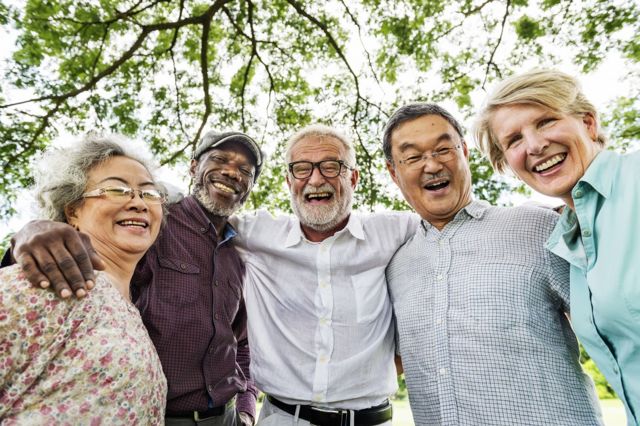
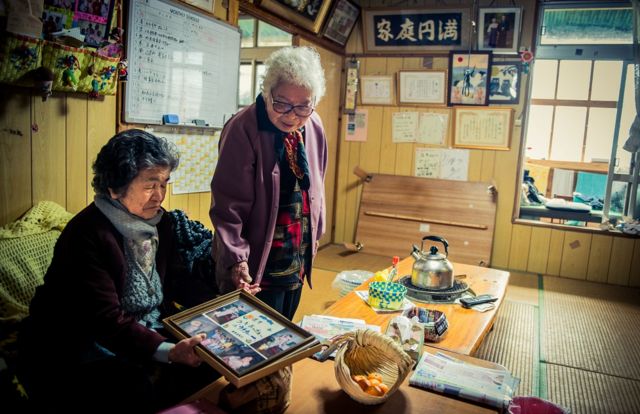
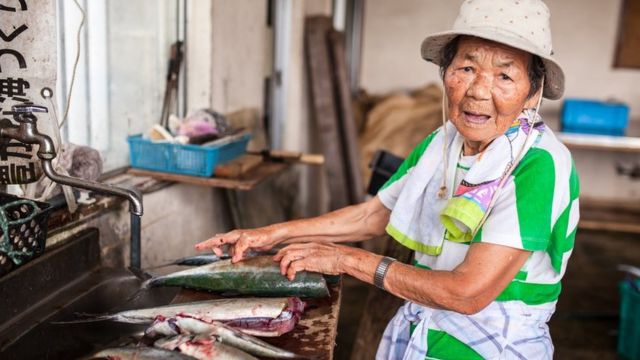
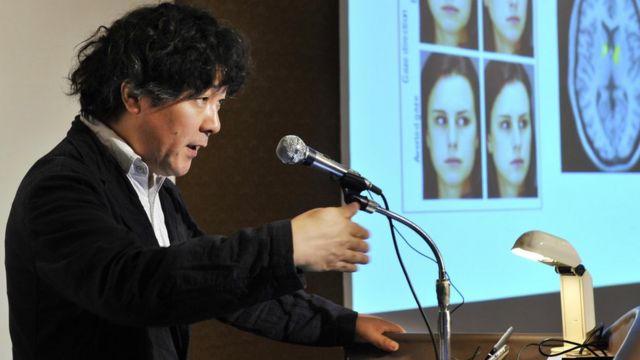
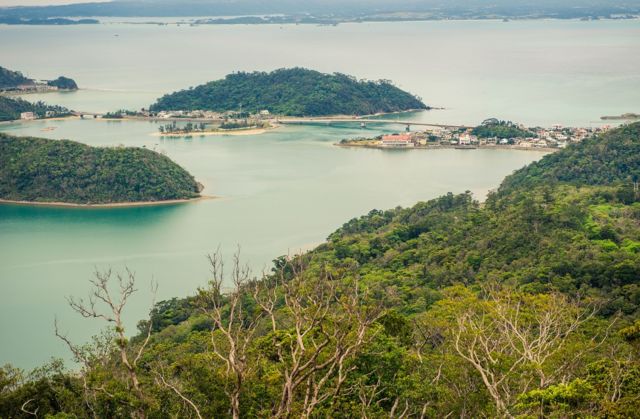
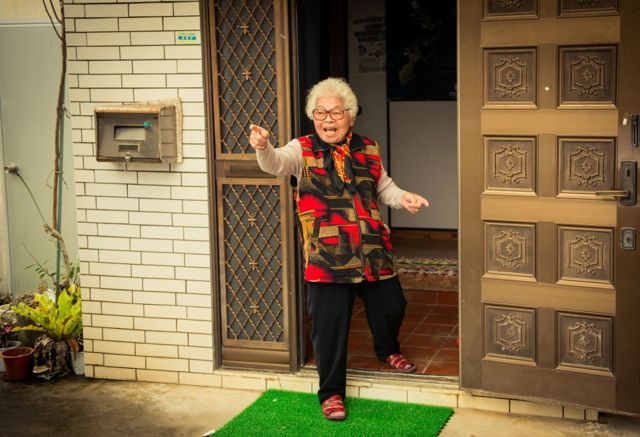
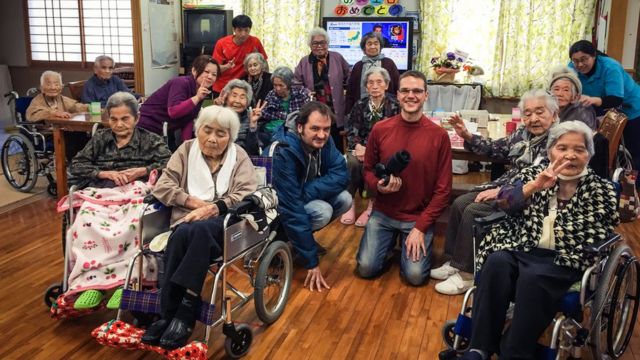

No comments:
Post a Comment